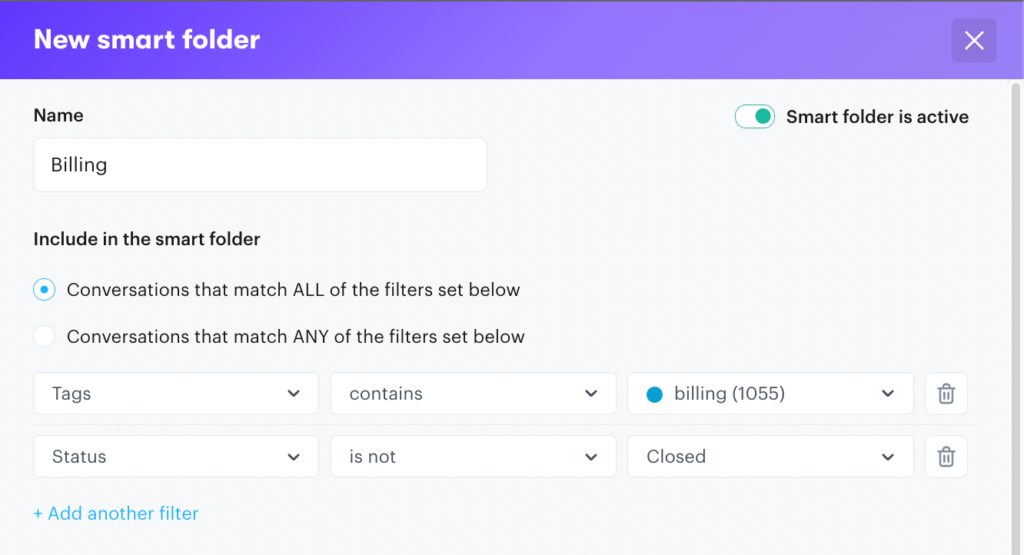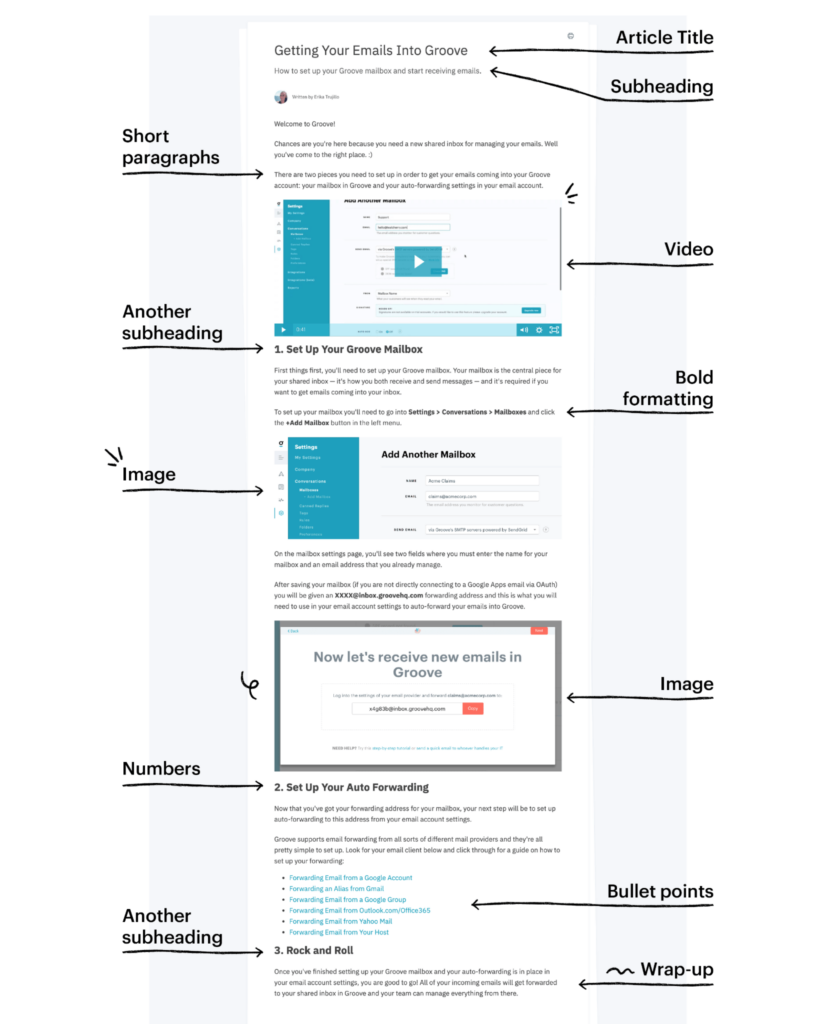Are you a support manager who wants to help your team improve their skills?
If so, you’re in the right place!
When most people think of support managers, what comes to mind is daily tasks like tracking the ticket queue, setting customer satisfaction goals, and analyzing feedback. But in reality, as I’m sure you know, they do much more than that.
Support leads are at the heart of their teams’ successes. Though it’s sometimes overlooked, they’re also responsible for making sure their coworkers are happy, productive, and most importantly, feel valued.
One of the best ways to do this is to make sure they get the resources and attention they need to hone their skills and grow in meaningful and impactful ways.
Today, we’ll look at some actionable strategies you can use to help your support team level up in your industry. They may take some time and effort to implement, but they’ll benefit your customers and business immensely over the long term.
On that note, let’s get started!
The Benefits of Building a Strong Team
Before we jump into the advice, you might be wondering why this is so important. Isn’t hiring good people and keeping tabs on their work enough?
That’s a start, but ongoing investment into your team’s development is crucial. Here’s what you stand to gain:
- Boost Employee Engagement. When your team knows you have their back and care about what’s best for them, they are more engaged and passionate about their work. Engaged employees are more likely to ensure that customers have a positive experience, leading to better overall outcomes for your company.
- Improve Team Performance. Teams that are continuously learning and developing new skills perform better. Whether it’s through cross-training, mentorship, or any of the other strategies discussed below, your team will become more agile and efficient, which leads to better results.
- Deliver a Better Customer Experience. Happy, well-trained employees provide better service. When your team is equipped with the right tools and knowledge, they can resolve customer issues quickly and accurately. This leads to higher satisfaction rates, and an overall more pleasant and memorable customer experience.
- Increase Retention Rate. Workplaces that emphasize growth and learning encourage people to stick around for longer than a month or two. Employees who feel valued and have opportunities to grow are less likely to leave. Ultimately, this saves the company time and resources that would otherwise be spent on recruiting and training.
- Develop Your Own Leadership Skills. Your team members aren’t the only ones who benefit! This process also helps you refine your own leadership abilities as a support manager. By focusing on employee development and team growth, you’ll learn how to manage, inspire, and lead more effectively. You can use these very skills and strategies to move up the support ladder, or into a different leadership role altogether.
7 Tips for Leveling Up Your Small Business Support Team
That all sounds pretty great, right? Of course, those advantages don’t come without a cost.
Fortunately, you can do a lot of the hard work upfront, and benefit from it over the coming months and years. With that in mind, here are seven proven strategies for helping your support team level up and perform at their best.
1. Start with a Great Onboarding Program
We firmly believe that all good support training starts with a great onboarding process.
When someone joins your team, onboarding is the first major experience they have with the business and existing members. You want them to understand who you are as a team, including your values and what you expect, by the time this process is complete.
It’s also important to use this opportunity to set new hires up for success, by providing them with the knowledge and tools they need to do their best work. This will help them avoid potential roadblocks and get comfortable in their new role.
Here are a few ways to make sure your onboarding program helps new hires level up their skills from day one:
- Provide detailed training materials. You’ll want to include internal webinars, detailed guides, documentation, and everything else that will help them understand their responsibilities as a support agent.
- Share your knowledge database. Before a new hire ever talks to a customer, they should be given some time to explore your knowledge database so they can see common questions and review support workflows.
- Hands-on practice. Allowing new support agents to work alongside some of your veteran employees helps them get a feel for how it all works beyond the documents. You could even consider recording video or audio mock support calls or practice sessions. This step is crucial, because it gives them a chance to ask their coworkers questions and get comfortable with the day-to-day job.
You can improve your onboarding program with Groove’s custom smart folder views and rule automation. These features allow new hires to better understand the support process by looking at real examples, which sets a solid foundation for their future.

Onboarding sets the tone for new employees. When done correctly, it’s a great way to prepare your team to hit the ground running. Ultimately, this reduces ramp-up time, improves employee confidence, and boosts overall team efficiency.
2. Help Them Get Certificates
Helping your team members get professional certifications is a great way to both improve their skills and build their confidence. Certificates provide formal recognition of their expertise, and help them stay up-to-date on the best practices in their industry.
As a manager, there are a few things you do to support them on this journey.
First, you’ll want to provide them with study materials and resources they can use to prepare. If you’re able to, we also highly recommend having the company pay for their certification, so they can see you value them and want them to reach their goals.
Before the test, spend some time working with the team member to make sure they’re prepared! That way, they can approach the test with confidence.
Here are a few certificates your support agents might benefit from:
- Certified Customer Service Professional (CCSP). Perfect for agents who want to improve their customer service skills.
- Help Desk Institute (HDI) Certifications. Cover everything from support center analysis to advanced troubleshooting. We like that they offer different levels depending on each agent’s experience.
- ITIL (Information Technology Infrastructure Library). Useful for those working in tech-heavy support roles, focusing on IT service management and improvement.
Professional certifications give your team members the confidence and tools they need to excel in their roles. When you invest in their development, they’re more likely to stay engaged and committed to growing within the company.
3. Build a Strong Feedback Loop
If you want to help your support team level up, we can’t over-stress the importance of building a strong feedback loop.
Feedback between you and your team is how you identify roadblocks, build rapport with each other, and ultimately deliver a top-notch customer experience.
The good news is that there are a ton of different ways to build and strengthen your feedback loop:
- Team meetings. We highly recommend weekly team meetings. Use this opportunity to let everyone discuss their key performance indicators (KPIs), goals for the week ahead, and any news they’d like to share. Plus, you can share important updates, give support members props if they did something well, and bond with your team.
- Individual meetings. It’s also a good idea to have one-on-one meetings, where you discuss individual progress, challenges, feedback, and opportunities for development. Encourage the team member to share their honest thoughts and feedback, so you can learn and grow from each other.
- Periodic surveys. If you want to go the extra mile, you could always send out an employee engagement survey, so you know you’re doing everything possible to get your support team involved. For instance, you could send a quarterly email survey to your team, and ask about what’s going well and what might need improvement.
Of course, just gathering feedback isn’t enough. You’ll want to have actionable follow-ups afterward, so your team can see the impacts of these conversations.
Chris Masanto, CEO and co-founder of PetLab Co., said:
As a pet care brand, we quickly learned that our customers often face urgent, health-related concerns about their pets—waiting for delayed feedback simply wasn’t an option. Pet owners need fast, accurate guidance, whether it’s about a supplement dosage or addressing specific health conditions.
At PetLab Co., we built a dynamic feedback loop that captured real-time insights from our support team and customers, allowing us to respond precisely. This system didn’t just help us improve our response times; it empowered our team to adjust and refine our approach as new patterns in customer inquiries emerged.
Over time, we noticed that by staying ahead of these concerns, we built stronger relationships with our customers and fostered deeper trust.
Showing agents that you are listening, care about what they say, and want to do right by them is a great way to improve morale. It gives your support team the direction and motivation they need to level up their skills.
4. Encourage Cross-Training
Another way support managers can help their teams improve is to encourage cross-training in various roles.
This strategy makes employees feel more valued, because they have flexible skill sets and can work wherever they are needed. It also means they’re always learning something new, and growing in ways that are meaningful to themselves and to the company.
Here are a few other benefits to consider:
- Diversify skills. Agents can take on different types of customer requests and even new roles entirely, which makes the entire team more versatile.
- Improve problem-solving abilities. Exposing your support team to different parts of the business helps them troubleshoot a wider range of problems, so they’re better equipped to help customers.
- Increase career mobility. Cross-training prepares agents for future roles in different departments, or higher-level positions within support.
We suggest asking employees if they’re interested in cross-training during your one-on-one meetings and quarterly reviews. This will help you figure out who wants to learn more about different roles, so you can make sure they have the opportunity to pursue their interests.
Cross-training increases team flexibility and improves confidence, which helps employees hone their skills and prepares them for future growth opportunities within the company.
5. Start a Mentorship Program
Our next way to level up your support team is by starting a mentorship program. When you pair new or inexperienced team members with veterans who know their way around a support call, you actually help both people.
The mentor gets a chance to show off their skills and try their hand at teaching. This could spark their interest and encourage them to move into a support trainer position, where they regularly train new employees.
Naturally, mentorship programs also benefit the person getting the training! Mentees can learn and evolve their skills by working side-by-side with established professionals.
If you decide to develop a mentorship system, we suggest creating a structure that both parties can use to get the most out of the experience.
For example, you’ll want to set concrete goals, schedule regular check-ins, and celebrate milestones when they occur. This keeps everyone on track, and ensures that the mentorship program is valuable to all involved.
Mentorship programs accelerate learning and develop a strong sense of community within your team. When new hires are paired with experienced colleagues, they gain confidence faster and feel more connected to the team.
6. Create a Knowledge Database
A well-organized knowledge database is one of the best ways to make sure your support team has the resources they need to level up. It helps agents quickly find answers to their questions, access training materials, and check out any bonus growth opportunities you have available.
Here are a few things to keep in mind when creating a knowledge database for your team:
- Include detailed documentation. Make sure your database covers common customer issues, internal processes, day-to-day workflows, and product updates.
- Keep it updated. Encourage team members to review and update the database based on what customers are saying. They can add whole entries or notes to existing pages.
- Make it accessible. Provide easy access to the knowledge database across devices, so team members can look up answers regardless of which devices they’re using.
- Consider adding other resources. Outside of traditional training resources, you may want to give your team access to additional information. For instance, you could set up a company Kindle account and buy books that motivate and inspire your support team.
Fortunately, it’s super easy to set up a knowledge database with Groove! It won’t take you long to create and organize a resource that helps your team work more efficiently.

Having a comprehensive, up-to-date knowledge base increases productivity, reduces response times, and minimizes the amount of time spent on repetitive inquiries. It also fosters a learning culture within your team.
7. Offer a Path Forward
One of the most important roles of any support manager is to offer team members a clear path for growth. Whether an employee wants to move into a leadership role, specialize in a particular area, or explore opportunities in other departments, it’s important to work with them on their long-term goals.
Here’s how you can do this:
- Career development plans. Sit down with employees to map out career trajectories that align with their goals and the company’s needs.
- Stretch assignments. Give employees the opportunity to take on projects outside their typical responsibilities, such as presenting feedback and reporting metrics to leadership to show that they’re eager to learn and grow within the company.
- Ongoing training. Offer resources that will help employees advance, whether it’s learning about new tools, soft skills, or industry trends.
While the path forward might not always align perfectly with an employee’s initial request, providing a step-by-step progression that brings them closer to their goals will keep them motivated and engaged.
When employees feel like they have a future within the company, they are more likely to stay long-term. Offering opportunities for advancement shows that you are invested in their personal and professional growth.
Final Thoughts
Leveling up your support team requires dedication and strategic planning. But when done right, the results are well worth it. You’ll end up with a more skilled, engaged workforce, improved customer satisfaction, and a stronger bottom line for your business.
By implementing the strategies we’ve discussed today, you’re building a support ecosystem that fosters growth, encourages innovation, and delivers exceptional customer experiences. It’s an approach that benefits everyone: your team members, your customers, and your organization as a whole.
Groove is an invaluable asset for support managers who want to help their teams thrive! We’ve mentioned a few features that significantly streamline your operations and enhance your team’s efficiency, but those are just the beginning.
Start your free trial with Groove today, and begin your journey to a happier, more productive support team.







